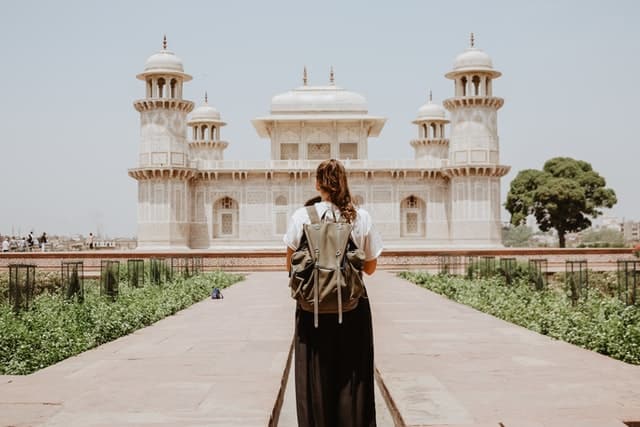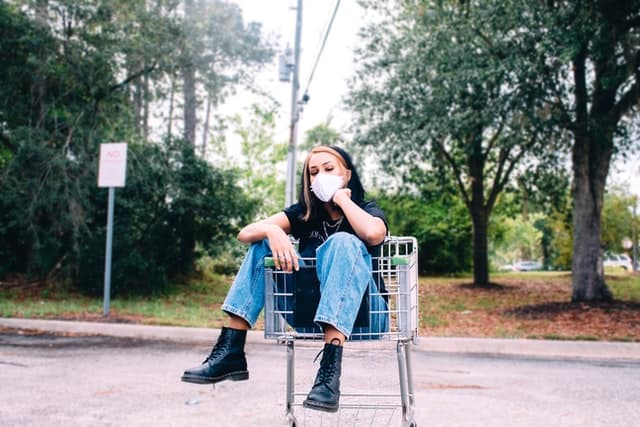As the pandemic entered our lives, travel became a far-fetched reality. As everything is going back to normalcy with vaccinations and the new normal, one addition is the new rules of international travel. With International travel becoming difficult amidst the pandemic restrictions, many tourist places and institutions have started asking for a proof of vaccination, or a vaccination passport.
International travel was banned till the end of June 2021. As the barriers to travel are being shed away, let us have a look at what does travel post-COVID will look like.
What is a vaccine passport?
Vaccine passport can be understood as a proof of vaccination or a negative test report against COVID-infection. The document can exist both in physical and in digital format. You can carry your vaccine passport easily with you throughout your travel.
The purpose is very much similar to the medical passport issued by WHO. The medical passport is a proof that the candidate is vaccinated against communicable diseases.
Can you get a vaccine passport in India?
When an individual is vaccinated against COVID-19, they receive a document from the Ministry of Health and Family stating that the concerned person has been vaccinated against the disease. While travelling within India, the certificate of vaccination is a proof of vaccination along with a recent negative test report. Aarogya Setu app can also be used to keep COVID related details of the individual.
As foreign universities and institutions are demanding complete vaccination of international students and employees, the need of linking the vaccination data with the passports has emerged. Union Ministry of Health and Family Welfare has issued updated guidelines, which talks about issuing a separate certificate of vaccination with the passport number mentioned on it for three exceptional cases.
- Students who have to undertake foreign travel for education.
- Persons who have to take up jobs in foreign countries.
- Athletes, Sportspersons and accompanying staff of Indian contingent attending International Olympic Games to be held in Tokyo

Upcoming Trend in Travel Post-COVID
More Domestic Travel
As international travel is still not open to all the countries, people will be more bent towards domestic travel. This will ensure that all the hidden travel places will be explored by the travel enthusiasts. The rise in Domestic travel will improve the state of the country tourism income and boost the tourism economy.
COVID Restrictions will stay
The COVID restrictions will stay for a long time. It is the new-normal. Always carry your sanitiser, wear your mask, maintain social distancing for best care of yourself and your loved ones. Ensure that you stay at home and get tested if you feel any kind of symptoms.
Longer vacations
People will plan longer vacations in the light of work from home and restrictive conditions. Once you are on a vacation, you will spend more days to enjoy every bit of it after such a long time. Enjoy your relaxed vacations with safety and caution.
Non-existing Holiday Season
People are expected to book travels without any calendar. Holiday season is expected to be non-existent in the coming times. With work from home options, people are already opting for work from their destination
Stay safe when you travel
Staying safe is the best way to cope with the situation at hand. As they say, ‘prevention is better than cure’. Times like these require extra effort and care to safeguard oneself and loved ones from the disease.
Follow these steps while you travel
- Always maintain a distance of 6 feet (2 meters) in between two people.
- Avoid direct or indirect contact with anyone who is sick.
- Limit touching objects that are accessed often like door handles, elevator buttons, etc.
- Use hand sanitizer if you come in contact with an object easily accessible to people.
- Always wear a mask that fits you snugly and covers your nose and mouth.
- Avoid touching the nose and mouth with your hands.
- Cover yourself while you sneeze or cough with a tissue or your elbow.
- Wash your hands thoroughly for 20 seconds every two hours to avoid any danger.
- Do not eat or drink while traveling.
Air travel
The air inside the flights is filtered and makes it difficult for the infection to spread but one must not put their guard down at any cost. Social distancing is difficult to maintain in crowded flights.
The following guidelines have been drawn up to keep a check on the spread of the virus.
- Travelers must wear masks all through the journey and also during the screening and entry.
- The documents must not be handed over, rather must be kept on the desk, or held up for inspection.
- Travelers are required to carry their personal sanitizer at all times.
- Small personal items should be kept in carry-on bags o avoid the handling of the same by the personnel during screening.
- Wash your hands thoroughly before and after screening.
Car travel
If you are thinking of going on a road trip, you must be smart about choosing the places to stop at. Car travel gives you better control over your environment. The following guidelines must be kept in mind while undertaking car travel.
- Take lesser stops than usual but take a stop if you start feeling drowsy.
- Carry face masks, sanitizer, disinfecting spray, wipes for use.
- Carry some food with you so that you do not have to stop often.
- Pay through digital payment methods while getting your car refueled.
Other transportation
Make sure you are sitting or standing within 6 feet (2 meters) of others to ensure safety. Investigate car rentals and their disinfecting policies to ensure safe travel. If you are going to use public transportation, maintain social distancing, wear a mask, and use hand sanitizer or wash your hands after reaching your destination.
Hotels
The concerns of the visitors have been well understood and taken care of by the hotel industry. Always check and ensure the policy of the hotel you are visiting. The disinfection and cleaning services they offer. Some best practices include:
- Enhanced cleaning procedures
- Social distancing measures
- Masking of staff and guests
- Contactless payment
Always Make a packing list
No matter how you are traveling, do not forget to pack the essential safe-travel supplies:
- Face masks
- Tissues
- Alcohol-based hand sanitizer (at least 60% alcohol)
- Disinfectant wipes (at least 70% alcohol) for surfaces
- Thermometer
Remember safety first
Traveling is all fun until everyone is safe and secure. We all must take care of each other and set plans aside in case of any illness. Consider the following prevention measures while you travel:
- Stay at the hotel/home if you feel sick or think you have COVID-19 even if you don’t have symptoms
- DO not start travel if you are waiting for the results of a COVID-19 viral test
- Do not embark on a journey if you have been diagnosed with COVID-19 even if you don’t have symptoms
- Stay at home/hotel room if you have come in contact with someone suspected or diagnosed with COVID-19 in the past 14 days even if that person didn’t have symptoms




1 Comment
Comments are closed.